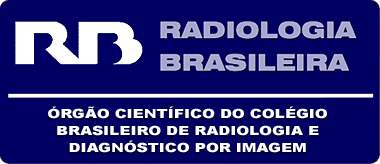mHealth, or mobile health is a term associated with the daily practice
of medicine and public health supported by mobile devices such as cell phones and
tablets. It is an universal trend of convergence of all patients' information and
images, data banks as source of information, academic social networks, specialized
remote support systems and alike, as a support to the medical practice and to the
teaching of medicine. Additionally there is the possibility of access by patients to
their reports, tests results and schedules. However, other low-cost technologies are
available, such as Raspberry Pi, a credit-card-sized computer developed in the United
Kingdom by the Raspberry Pi Foundation(11 Fundação Raspberry Pi. [acessado em 17 de
março de 2014]. Disponível em:
http://www.raspberrypi.org/.
http://www.raspberrypi.org/...
). Such project was aimed at facilitating and encouraging
the teaching of computer sciences for children in that country, and involving the study
of computer techniques, methods and tools, processes automation and development of
solutions based on the use of digital processing. The success of this project has
motivated the development of other applications, in health inclusive, also proposing its
utilization as a medical DICOM images viewer. The hardware as a whole is integrated into
a single board which may be coupled to a display monitor, but obviously without meeting
the minimum requirements for communication protocols, file or algorithm format in
agreement with the current DICOM and HL standards(22 Manual de certificação para sistemas de registro
eletrônico em saúde. [acessado em 17 de março de 2014].
Disponível em:
http://www.sbis.org.br/indexframe.html.
http://www.sbis.org.br/indexframe.html...
). Probably, such a solution may be useful for
clinicians to visualize images, but, strictly speaking, should not be utilized as a
working tool for the radiologist. The present issue of Radiologia
Brasileira introduces the theme “Raspberry Pi: a 35-dollar device for
viewing DICOM images”(33 Paiva AO, Moreira RO. Raspberry Pi: dispositivo de 35
dólares para visualização de imagens DICOM. Radiol Bras.
2014;47:99–100.). Therefore, this is a worthwhile opportunity to reflect on the
theme.
REFERENCES
-
1Fundação Raspberry Pi. [acessado em 17 de março de 2014]. Disponível em: http://www.raspberrypi.org/.
» http://www.raspberrypi.org/ -
2Manual de certificação para sistemas de registro eletrônico em saúde. [acessado em 17 de março de 2014]. Disponível em: http://www.sbis.org.br/indexframe.html.
» http://www.sbis.org.br/indexframe.html -
3Paiva AO, Moreira RO. Raspberry Pi: dispositivo de 35 dólares para visualização de imagens DICOM. Radiol Bras. 2014;47:99–100.
Data availability
Data citations
Fundação Raspberry Pi. [acessado em 17 de março de 2014]. Disponível em: http://www.raspberrypi.org/.
Manual de certificação para sistemas de registro eletrônico em saúde. [acessado em 17 de março de 2014]. Disponível em: http://www.sbis.org.br/indexframe.html.
Publication Dates
-
Publication in this collection
Mar-Apr 2014

